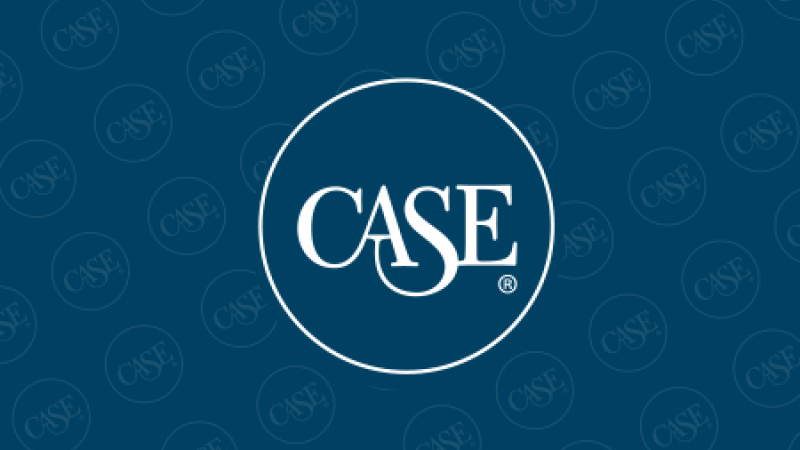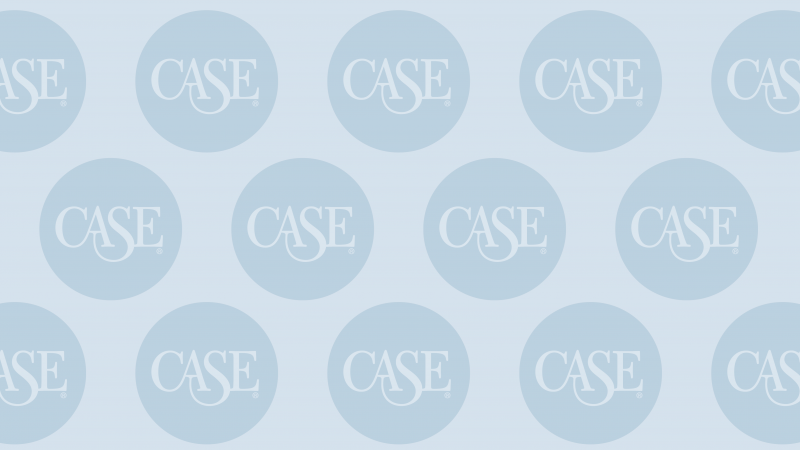
Adapting in a New World
The spread of COVID-19 is still at full swing as I write these lines from home, trying to adhere to social distancing rules and attempting to make sense of a new reality that seemed unfathomable just weeks ago. During these difficult moments, it is only natural to be thinking about family, friends, and loved ones, but also about the road ahead for our institutions.
At schools, colleges, and universities worldwide, faculty and administrators have been scrambling to provide academic continuity. They are doing amazing work that should be commended. The passion, creativity, and absolute dedication of professors and support staff to their students is indeed the stuff of champions.
While we tend to the urgency of the emergency in front of us, we should also make sure to dedicate sufficient time and effort to envision what the future is going to look like over the next 12 to 18 months. This is a perfect time to reflect on the future of our institutions and to imagine how the impact of the pandemic will manifest in each of our constituencies.
A New Normal
As we move with haste through the crisis, visionary leaders are realizing that there will be no such thing as going back to normal. We are all coming to realize that this is a turning point: a once-in-an-era event that will impact everything we know, including how we study, how we work, how we prioritize, and how we organize. Failing to recognize the advent of a new normal (or attempting to force our institutions towards the comfort and relative security of the old and proven) would be an abdication of one of a leader’s fundamental responsibilities: assuring the sustainability of one’s organization. Even more so, aligning organizations to successfully navigate turbulent environments is a key, strategic ability that every leader should deploy.
In the months ahead, society will develop new expectations about education. Students will seek to learn (and expect to work) under different formats. Faculty will approach teaching and learning in new ways. Staff will undertake their jobs in innovative and creative manners, and governing boards will need to re-educate themselves to understand a new higher education landscape. Much of what we know will be structurally redefined.
Thinking Forward
Consequently, the resilience of institutions will not be measured by how fast we can return to what we knew, but rather by how effectively we adapt to a new world. Forward-thinking institutions will question deeply held assumptions, revisit plans, revise priorities, and inquisitively ponder their business models. But most importantly, they will grow from what they learned when the epic challenge of academic continuity was thrust upon them.
At CETYS University, Mexico, our high-level crisis management team has recognized the need to start working on the recovery process. A committee of forward-thinking individuals has been appointed by the crisis management committee to forecast what the post-COVID environment will look like, assess risks, and identify opportunities. This group, the scenario and planning task force, is expected to circle back to the crisis management team in the weeks to come and set forth recommendations that serve as bearings in the many decisions we will make as we venture into uncharted waters.

For institutions worldwide, needless to say, financial stability will go a long way in serving as a stepping stone towards new scenarios where guidelines will change, procedures will morph, and human resources practices will evolve. However, it will be openness to new ideas, creativity, discipline, and smart risk-taking that will help Institutions rise to meet the opportunities and challenges that the sector is facing.
Particularly, in Latin America, we anticipate enrollments will take a hit as a direct result of the economic crisis to ensue. Giving will also be impacted. Company-sponsored research is also anticipated to suffer. Corporate programs will most likely be downsized. Nevertheless, our institutions will play it smart. Advancement will redirect some efforts, albeit temporarily, and set up emergency funds and relief-related giving opportunities; these will resonate with current benefactors and help tap into new donors.
Opportunities Amid Challenges
When fishermen can't go to sea, they mend their nets, reads the old proverb. During these challenging times, opportunities will also emerge. Relationships will be strengthened. Alumni will be called (maybe for the first time) not to be solicited, but merely to be thanked for their continued support. The conversation will shift from the transactional to the transformational. Empathy will flourish, and we will learn to cherish the value of non-financial goals. Hard metrics will be temporarily set aside, only to help us prepare for the better years ahead.
Yes, times will be tough, and uncertainty will prevail for some months. Yet, regardless of these challenges, we will come back to our campuses, and our labs and lecture halls will fill once again with the probing questions of inquiring minds. The lights of our sports fields will turn on and the beats of the marching bands will echo through the night. Theaters will open and libraries will fill up as finals come around once more. Cafeterias and residence halls will buzz again with the joy and spirit of freshmen and seniors alike. Sooner rather than later, we will recover the rich, thriving student life that makes our respective institutions unique and higher education a life-transforming experience.
We will get past this, no doubt, and we will all be better because of it. Yet to achieve that, we need to make sure that our preoccupation with the urgent does not distract us from the potential and opportunities that may be around the corner. We need to continue, steadfast, advancing the mission of our institutions, and that means keeping our sight on the long haul.
Now, more than ever, we have the opportunity to prove to a sometimes skeptical public of the lasting value of higher education. In the words of Niccolò Machiavelli, “Never waste the opportunity offered by a good crisis."
About the author(s)
El Dr. García es Director de Relaciones Institucionales y Coordinador de la Oficina de la Rectoría en CETYS Universidad, un sistema universitario particular de enfoque global ubicado en el noroeste de México. El Dr. García ha estado involucrado en temas de relaciones externas por más de 20 años, habiendo servido como Director de Avance Institucional del Sistema CETYS (2004-2009), Director de Campus en dos periodos (2010-2016), y Enlace con el Órgano de Gobierno (2008-2020). En su rol actual tiene a su cargo la supervisión de las Direcciones de Alumni, Comunicación Institucional, entre otros.Como enlace con el Instituto Educativo del Noroeste, Órgano de Gobierno del CETYS, el Dr. García ha hecho el staffing de su Comité de Nominaciones (Gobernanza) coordinando los proceso de desarrollo, evaluación y capacitación. Fue el principal punto de contacto para un proceso de reestructuración multianual por el cual el Consejo fue reconocido con el el prestigioso Premio John W. Nason de AGB, siendo la primera institución fuera de EUA en recibir tal reconocimiento a las mejores prácticas de Gobernanza.
Credenciales profesionales
Obtuvo su Doctorado en City University en Seattle, WA, y un MBA por CETYS Universidad. En el ámbito de avance institucional, el Dr. García tiene una preparación formal que incluye su paso por la prestigiada The Fundraising Schools en Indiana-Purdue y la Escuela de Graduados en Educación de Harvard, así como diversos seminarios y cursos de actualización.
Carlos está activo en varias organizaciones de la educación superior, incluyendo el Consejo para el Avance y el Apoyo a la Educación (CASE), la Asociación de Consejos de Gobierno de Universidades y Colegios (AGB), y el Consejo Americano de Educación (ACE). Ha sido miembro de la junta directiva de COPARMEX (organización empresarial líder en México), la Corporación de Desarrollo Económico, Cruz Roja Mexicana, el Museo de Ciencias Caracol, Rotary International (D-4100), entre otros.
Adicionalmente, ha tenido una participación activa como voluntario en CASE donde ha impartido cursos, seminarios y talleres relacionados con avance institucional, filantropía, relaciones con ex alumnos, mercadotecnia para universidades y colegios, tanto para Latinoamérica como en los EUA. Fue miembro de la Comisión de Relaciones con Ex Alumnos del Consejo Directivo de CASE (Washington, DC).
Es miembro por invitación del selecto cuerpo de consultores del Association of Governing Board, medio por el cual se apoya a instituciones educativas a mejorar sus procesos de Gobernanza.

